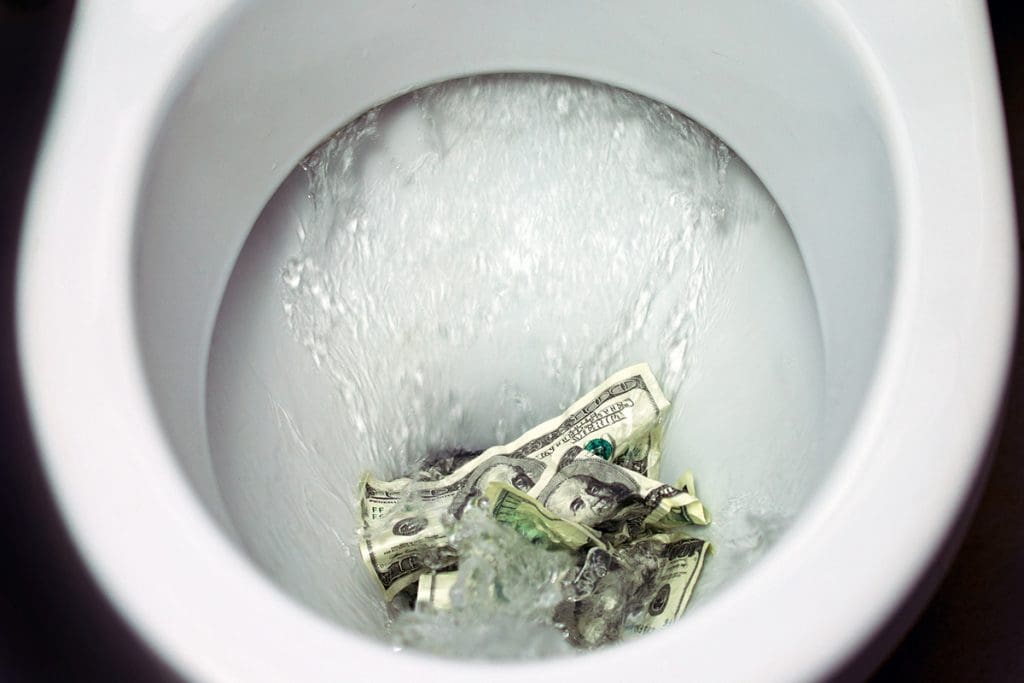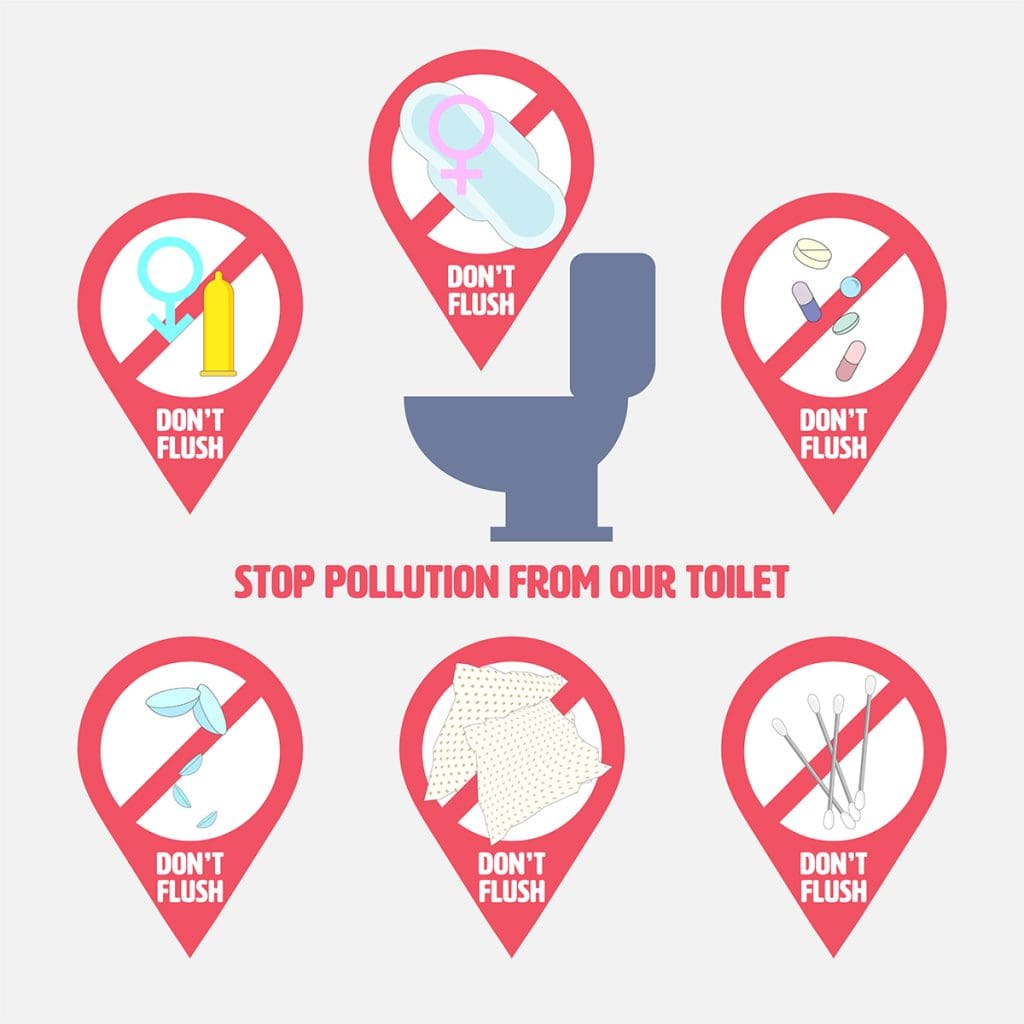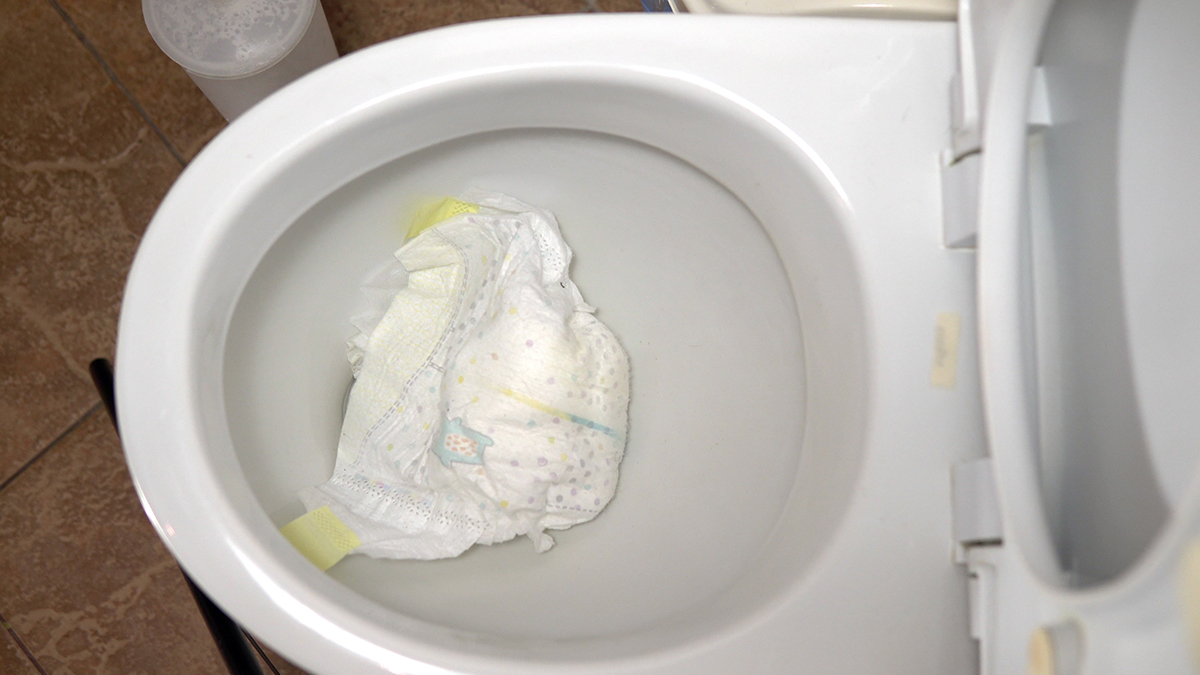In households and commercial properties, dealing with septic issues is a source of frustration and inconvenience. You may have encountered common septic system problems such as drain field damp spots, overflowing septic tanks, or sewage backups, which can be exacerbated by the improper disposal of certain items down the toilet.
In this blog post, you’ll gain valuable insights into the 12 items you shouldn’t flush down your toilet, helping you avoid costly septic system failures and the health hazards associated with raw sewage exposure. By learning about proper waste disposal and routine maintenance, you can safeguard your entire septic system from issues like compacted soil, excess water, and sewer line connections.
Take control of your septic system’s well-being and schedule an appointment with Biros Septic & Drain Cleaning to ensure the longevity and proper operation of your wastewater management infrastructure. It’s time to make informed choices and protect your property from the detrimental effects of flushing the wrong items down your toilet.
1. Bandages or Other Medical Supplies
Flushing bandages, gauze, or any other medical supplies down your toilet may seem convenient, but it can lead to severe septic issues. These items are not designed to break down in water and can cause drain pipes or septic system blockages. The consequence of this oversight can result in costly repairs and the potential for raw sewage backups, posing a health hazard to your property and the surrounding environment.
By responsibly disposing of medical supplies appropriately, you can ensure the proper maintenance and function of your entire septic system, safeguarding against drain field damp spots and soil compaction issues.
2. Dentures
Improperly disposing of dentures by flushing them down the toilet can have detrimental effects on your septic system. The materials used in dentures, such as plastic and metal, are not biodegradable and can lead to clogs in your plumbing system and septic tank. This oversight can result in the need for septic tank cleaning, sewer line cleaning, and even repairs to address the consequences of flushing non-biodegradable items.
If your dentures accidentally fall in the toilet, grab a pair of rubber gloves and remove the dentures from the toilet. Be sure to properly sanitize them before placing them back in your mouth. Or, if the pair that fell in the toilet is your old pair, be sure to throw them away in the proper waste receptacle instead of your toilet. By understanding the implications of these actions and opting for the correct disposal methods, you can prevent the need for costly septic system repairs and ensure the proper operation of your entire wastewater management infrastructure.
3. Money

There are safer places to store your money than your septic system. While it may seem unusual, flushing money down the toilet can lead to serious septic problems. Coins and bills are not meant to be introduced into your plumbing system and can lead to blockages and malfunctions. These problems can lead to even bigger issues, such as overflowing septic tanks and sewage backups, creating a significant inconvenience and potential health hazard.
If you have so much money that you’re willing to flush it away, we know some people who could benefit from it. By educating yourself and others on the importance of proper waste disposal, you can avoid unnecessary septic system failures and the associated costs and inconveniences. Instead, opt for responsible waste management practices to protect your septic system and ensure its consistent maintenance and proper operation.
4. Jewelry
Similar to the money scenario, there are better places to keep and protect your precious jewelry than a septic tank full of sludge and waste. Flushing jewelry down the toilet is an unfortunate loss and can lead to substantial septic system problems. Precious metals and gemstones can cause obstructions in your plumbing, potentially leading to drain field settling and issues with your septic tank.
If you accidentally drop a ring or necklace in the toilet, get your handy rubber gloves and fish them out. Be sure to sanitize them properly before wearing them again. If the items fall in the toilet where you can’t see them, call our team to help retrieve them. Do not flush the toilet.
Understanding the impact of these actions can help you make informed decisions about waste disposal, protecting your septic system from complications such as standing water near the drain field and soil compaction. By choosing responsible disposal methods, you can maintain the functionality of your septic system and avoid unnecessary expenses associated with improper waste management.
5. Diapers
Flushing diapers down the toilet can result in severe septic issues due to their absorbent materials. Diapers are designed to retain moisture and do not break down easily in water, leading to clogs and potential damage to your toilet and septic system.
This oversight can cause drain field damp spots, soil compaction, and difficulty properly operating your septic tank. By understanding the implications of flushing diapers and opting for appropriate disposal methods, you can protect your septic system from costly repairs and maintain its efficient and proper function.
6. Fish
While it may seem harmless, flushing fish or other food down the toilet can negatively affect your septic system. The organic matter from the fish and the potential introduction of harmful bacteria can disrupt the balance of good bacteria in your septic tank. This imbalance can lead to septic tank issues, such as decreased natural bacteria levels and the potential for septic system failure. By making informed decisions about waste disposal, you can avoid disrupting the biological processes within your septic system, ensuring its consistent maintenance and proper operation.
7. Disposable Gloves
Improper discarding of disposable gloves by flushing them down the toilet can lead to significant septic system issues. These non-biodegradable items can cause clogs in your plumbing and septic system, potentially resulting in issues such as sewage backups and health hazards. By recognizing the impact of flushing disposable gloves and adopting responsible waste management practices, you can protect your septic system from the detrimental effects of improper waste disposal, avoiding costly repairs and ensuring its reliable operation.
8. Face Masks
In recent times, the improper disposal of face masks by flushing them down the toilet has become a concern due to the materials used in their production. Non-biodegradable materials in face masks can lead to clogs in your plumbing and septic system, potentially causing issues such as standing water near the drain field and difficulties with the proper operation of your septic tank.
Do yourself and the environment a favor by disposing of face masks in proper waste bins. Raising awareness about the consequences of flushing face masks and promoting responsible waste management can protect your septic system from unnecessary complications and maintain its efficiency and proper function.
9. Toys
Nearly every parent has had a problem with their children playing with their toys in the toilet bowl. But what happens if one accidentally takes a deep dive to explore your sewage pipes? This innocent act can lead to significant septic system problems. The non-biodegradable materials used in toys can cause blockages in your plumbing and septic system, potentially leading to issues such as overflowing septic tanks and sewage backups.
This scenario can quickly turn into a stressful and costly ordeal. By understanding the implications of flushing toys and opting for appropriate disposal methods, you can protect your septic system from unnecessary complications and maintain its efficiency and proper function.
10. Any Kind of Rubber Item

Resist the temptation to flush rubber items down the toilet, as these items are not designed to break down in water. Rubber materials can cause serious obstructions in your plumbing and septic system, potentially resulting in drain field settling and difficulties with properly operating your septic tank. Consider the dire consequences of flushing rubber items and the subsequent need for costly repairs and maintenance.
11. Any Kind of Plastic Item
Flushing any kind of plastic item down the toilet can lead to severe septic issues due to the non-biodegradable nature of plastics. These items are not designed to break down easily in water. They can cause blockages in your plumbing and septic system, potentially resulting in issues such as standing water near the drain field and soil compaction.
Think about the inconvenience and potential health hazards associated with a malfunctioning septic system caused by plastic-related clogs. By making informed decisions about waste disposal and following our advice, you can protect your septic system from costly repairs and ensure its reliable operation.
12. Septic Tank Cleaners
It’s crucial to be mindful of what you introduce into your septic system, including the type of cleaners used. Flushing septic tank cleaners down the toilet can disrupt the delicate balance of bacteria in your septic tank, potentially leading to septic system issues. The imbalance caused by harsh chemicals can result in decreased natural bacteria levels and septic system failure.
Instead, it’s best to call us for an appointment for rooter services and high-pressure water jetting to clear blockages without disturbing the delicate balance of bacteria in your septic system. Avoid commercial and household cleaners in your septic system.
Having Septic Issues? Call for Services Now!
In the world of septic system maintenance, the frustration of dealing with avoidable septic issues can be overwhelming. From the inconvenience of clogged toilets to the potential risks of a malfunctioning septic system, it can make you worried about when you’ll be able to use your indoor plumbing again. That’s why it’s essential to be mindful of what goes down your toilet to prevent septic system issues and maintain a smooth operating system. Imagine the peace of mind that comes with safeguarding your septic system against unnecessary complications and ensuring its efficient and proper function.
Throughout this blog post, you’ve gained valuable insights into the various items that should never be flushed down your toilet and the potential consequences of doing so. By understanding the implications and following the our expert advice, you can protect your septic system from costly repairs and ensure its reliable operation. With an extensive list of services tailored for residential, commercial, and industrial wastewater management, we offer the expertise and support needed to address septic issues effectively.
Don’t wait for septic issues to escalate—take proactive steps today to safeguard your septic system. Contact us at Biros Septic & Drain Cleaning to schedule an appointment and experience the benefits of professional septic system maintenance. Empower yourself to make informed decisions and take charge of preserving the integrity of your septic system.

